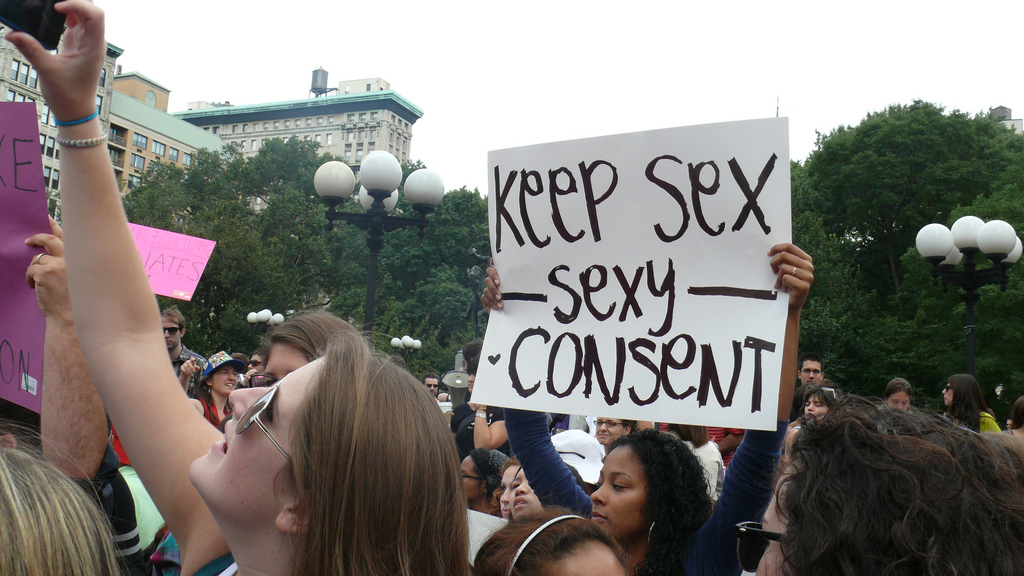Views expressed in opinion columns are the author’s own.
The Maryland General Assembly just passed legislation requiring instruction in public schools about sexual consent. The measure ensures that, during their schools’ Family Life and Human Sexuality units, students learn what consent means and how to respect personal boundaries. This bill is absolutely necessary to reduce the incidence of sexual assault on college campuses and represents what the #MeToo movement is capable of accomplishing.
As Lisae C. Jordan, director of the Maryland Coalition Against Sexual Assault, has said, “If we wait to teach them about consent when they are a freshman in college, it’s already too late.” This sentiment couldn’t be more true. By the time students enter college, their ideas of what consent means have likely already been determined.
[Read more: DC nonprofit visits UMD to promote sex-positive culture]
If we want the next generation of college students to respect consent, we have to teach it to them when they’re beginning to develop as adults. Because middle school is the juncture where many children begin puberty, sexual consent education should begin there. Putting this off allows students to develop opinions about sex and consent based on what they hear from friends, or what they see depicted in TV, movies and pornography.
Sexual assault and rape are rampant on college campuses. More than 23 percent of female and more than 5 percent of male undergraduate students are raped or sexually assaulted. We can — and should — try to prevent these incidents from occurring; however, the efforts we can take on college campuses may not resolve their root causes.
There is still a rampant lack of knowledge about sexual consent in our society. Just go to a College Park bar on a busy night, and you’ll be sure to see men groping women without any form of consent. Many men believe they have the right to touch a woman’s body without her permission. They may think it’s a compliment, or that it’s a necessary part of flirting. In reality, it is assault.
The #MeToo movement has made it clear women are fed up with being treated as sexual objects, leading to a renewed conversation around sexual misconduct. In fact, sponsors of this new legislation have cited the #MeToo movement as the spark that helped move the measure forward this year. Our actions and collective voices can make an impact.
[Read more: UMD hosts panel of sexual assault survivors and advocates to educate students]
This legislation supports a movement to change the way our society views consent. Changing this view is our best hope for a society where consent is understood and respected. Moreover, the #MeToo movement highlights the impact we can have by collectively saying “enough is enough.” I implore you to keep shouting and breaking the silence.
Mitchell Rock is a senior government and politics and physiology and neurobiology major. He can be reached at mrock13@umd.edu.



